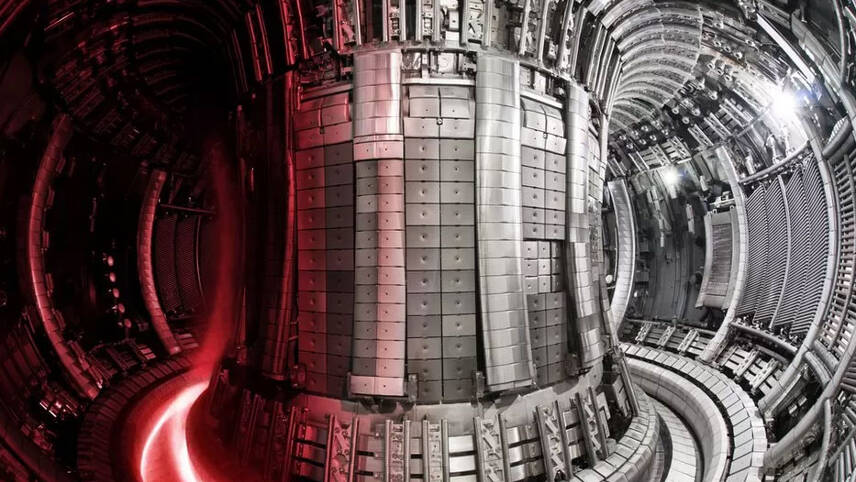Register for free and continue reading
Join our growing army of changemakers and get unlimited access to our premium content

Pictured: The UK's national fusion lab in Oxfordshire. Image: UK Atomic Energy Authority
Back in September, the Department for Energy Security and Net-Zero (DESNZ) stated that it would develop new programmes to support the growth of the sector in the UK post-Brexit. At the time, it touted a maximum investment of £650m through to 2027.
DESNZ has today (16 October) confirmed that the full £650m will be on the table for a new ‘Fusion Futures Programme’.
Up to £200m will be spent to develop a new Fuel Cycle Testing Facility. This facility will be used to develop ways of producing fuel for fusion power plants and assess the life-cycle impact and performance of different fuels.
A further £200m has been set aside for other R&D projects, on top of £50m to expand and improve Culham campus in Oxfordshire. The campus is home to the UK’s national fusion research laboratory, supported by the UK Atomic Energy Authority. It employs hundreds of staff and regularly welcomes experts from large companies, start-ups and academia.
In February 2022, the campus’s JET laboratory broke its own world record for the amount of energy it was able to produce over a five-second period.
Fusion future
A key facet of the Fusion Futures Programme is upskilling and reskilling. DESNZ will allocate up to £55m to a new skills programme over the next five years. The programme will be delivered in partnership with universities and businesses and is targeting more than 2,200 workers.
It bears noting that the UK will need to fill between 75,000 and 150,000 new roles in fusion and fission if it is to meet its 2050 nuclear targets, per MPs’ estimates.
Nuclear and Networks Minister Andrew Bowie said: “With world-leading scientific talent and expertise based here in the UK, we have a golden opportunity to be at the cutting-edge of fusion and lead the way in its commercialisation as the ultimate clean energy source.
“The Fusion Futures Programme, backed by £650 million, will be at the core of delivering this, training thousands of people across the country and ensuring we have the best possible facilities to develop this exciting new technology.”
Smaller funding pots have been confirmed for innovation challenge funding and fostering connections between research programmes across the UK and the world.
The plans will be added to an updated version of the UK Government’s Fusion Strategy. Since this document was originally published in October 2021, Whitehall has pledged £1.4bn of investment in the sector.
DESNZ claims that fusion is “many million times more efficient”, per kilogram, than burning fossil fuels. The hope is that it can also be exponentially more efficient than nuclear fission.
The general consensus is that energy generated using fusion processes will not be going into the grid, globally, at scale, before the 2050s.


The right approach for research has been chosen! First of all, it is necessary to fully study all stages of nuclear fusion. Interdisciplinary collaboration is really important for this. According to the UK Planning Strategy, the Government is going to unite various scientific specialists in England, but international experience in the study of such problems indicates that one country has not yet managed to achieve decent results on the atom. On the other hand, it is also politically impossible to combine the efforts of different countries due to the high competition in the energy market. In this regard, the only solution so far seems to be the creation of an international atomic research corporation with the participation of all developed and interested countries in the company’s capital. The choice of the corporation’s management will be the subject of discussion at the international conference.